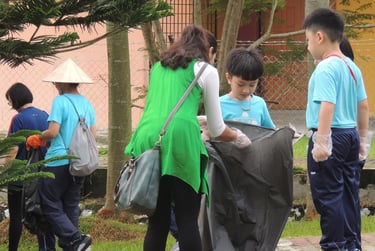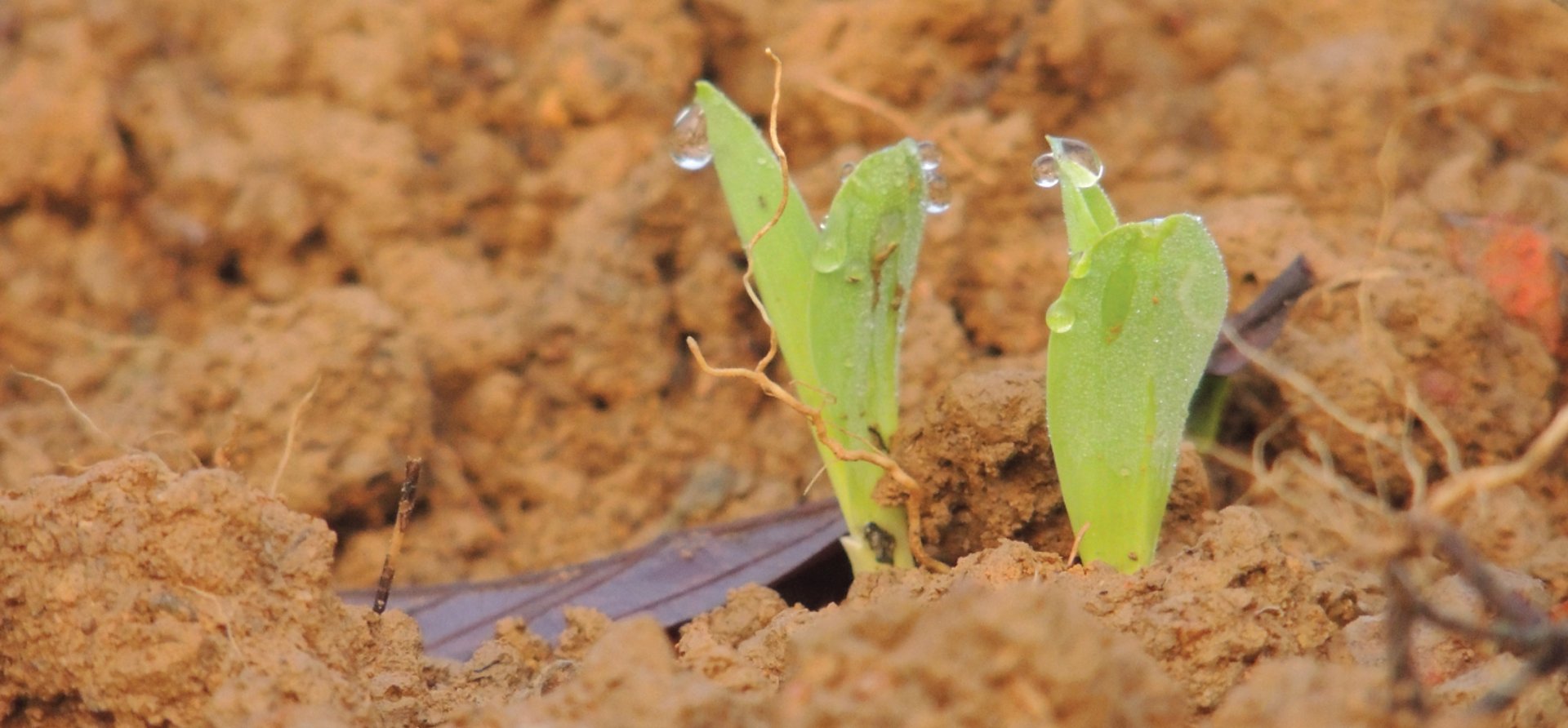
Environment
Our commitment to environmental sustainability is rooted in the principle of stewardship, focusing on protecting and preserving the natural world for future generations by minimizing our ecological footprint and fostering a deep respect for nature.
Farming is one of TMC’s annual projects occurring between February and July. Teachers and children work as a team in the farming process; land clearing, seeding crops, plants nurturing, weed removal, observing plants growth, recording growth, harvesting, cooking and finally tasting the food they grew. The project intends to instil the values of hard work, patience, love, teamwork and appreciation of nature in our children. They are values we hoped they will carry through to their adult life.
Farming is one of TMC’s annual projects, taking place between February and July. During this time, teachers and children collaborate in various stages of the farming process, including land clearing, seeding crops, nurturing plants, removing weeds, observing plant growth, recording progress, harvesting, cooking, and finally, tasting the food they grew. This project aims to instill the values of hard work, patience, love, teamwork, and appreciation of nature in our children—values we hope they will carry into adulthood.
Moreover, this farming project serves as an excellent practical example of environmental sustainability. By engaging in farming, children learn the importance of sustainable agricultural practices and the benefits of growing their own food. They gain hands-on experience in caring for the environment, understanding the impact of their actions on nature, and appreciating the resources required to produce food. This hands-on approach helps to foster a deeper connection to the environment and a lifelong commitment to sustainable living.
Through these activities, we aim to nurture not only a sense of responsibility and community but also an enduring respect for the natural world. By teaching these principles from a young age, we hope to inspire the next generation to become environmentally conscious and proactive in their efforts to protect our planet.
Farming
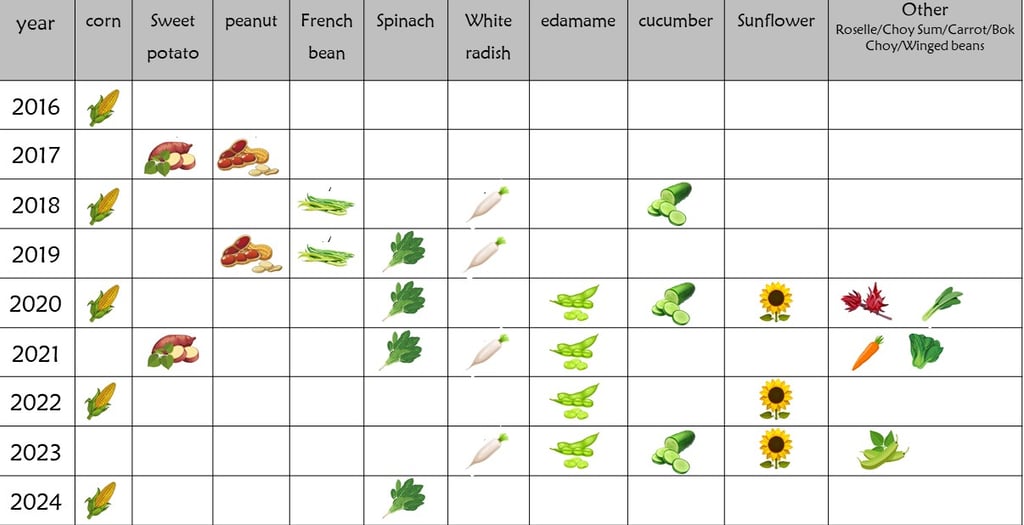

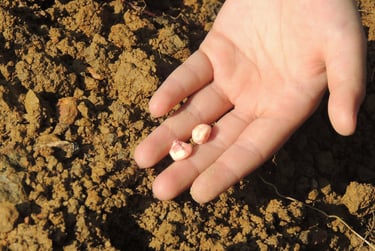

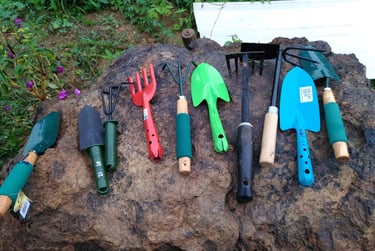

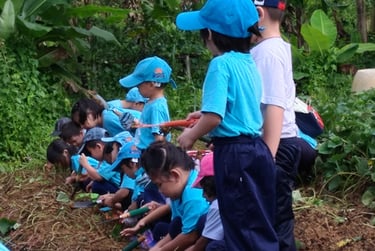

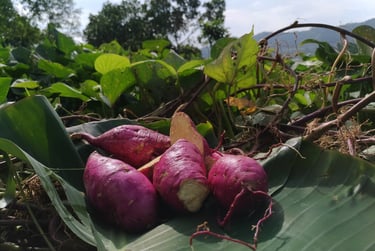

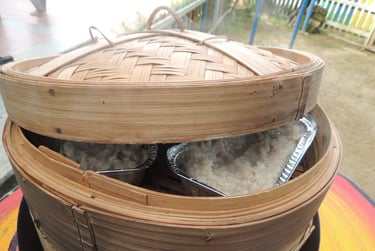

At TMC, we have a monthly recycling routine that engages children in environmental sustainability practices. Each month, children are encouraged to bring recyclable items from their homes to TMC. This campaign fosters a close kinship between children and their parents as they work together towards a common goal.
Recycle Campaign
This recycling initiative not only teaches children the importance of reducing waste and recycling materials but also highlights the tangible impact of their actions on the environment. By involving families in this effort, we emphasize the role of the community in achieving sustainability goals. Children learn firsthand how recycling helps conserve natural resources and reduce environmental degradation.
Through this ongoing project, we aim to instill a sense of environmental responsibility in our children, encouraging them to adopt sustainable habits that will benefit the planet throughout their lives. By starting these practices at a young age, we hope to inspire a generation that is conscious of its environmental footprint and committed to making a positive difference.
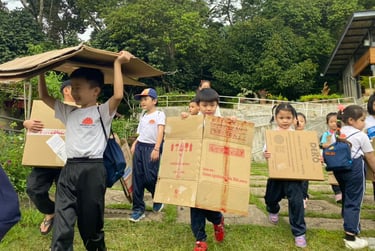

Our achievements include:
2016: 532 kgs of paper recycled, saving 10 trees aged 20 years
2017: 522 kgs of paper recycled, saving 10 trees aged 20 years
2018: 487 kgs of paper recycled, saving 9 trees aged 20 years
2019: 232 kgs of paper recycled, saving 4 trees aged 20 years, plus plastic
2020: Pandemic COVID-19
2021: Pandemic COVID-19
2022: 24 families participated
2023: 177 kgs of paper recycled, saving 3 trees aged 20 years - 5 months, 25 families participating
2024: 376 kgs of paper recycled, saving 7 trees aged 20 years - 33 families participating annually
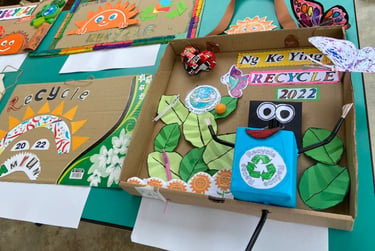

Each child owns and brings along a personal picnic set wherever they go. The purpose of this picnic set is to reduce plastic usage in TMC and to create an awareness to love and care for the environment through action.
At TMC, each child is encouraged to own and bring along a personal picnic set wherever they go. This initiative is designed to significantly reduce plastic usage within our community and foster a deep sense of environmental responsibility among our students. By using their own reusable items instead of disposable plastics, children actively participate in protecting the environment and learn the importance of sustainable practices.
The personal picnic set, which includes a reusable water bottle, food container, utensils, and a cloth napkin, helps minimize waste. This practice not only teaches children the practical aspects of reducing plastic consumption but also instills lifelong habits of environmental stewardship. Each time a child uses their picnic set, they are reminded of their role in caring for the planet.
Through this initiative, we aim to create a culture of sustainability at TMC. Children understand that their actions, no matter how small, can contribute to larger environmental goals. This daily practice reinforces the idea that loving and caring for the environment is an integral part of their lives.
Additionally, this initiative encourages families to adopt similar practices at home, extending the impact beyond the school. By involving parents and caregivers, we strengthen the community’s commitment to sustainability and create a supportive network that champions environmental consciousness.
Overall, the personal picnic set initiative at TMC serves as a practical and powerful tool to educate and inspire our children to become proactive in their efforts to protect and preserve the environment for future generations.
Bento Bag
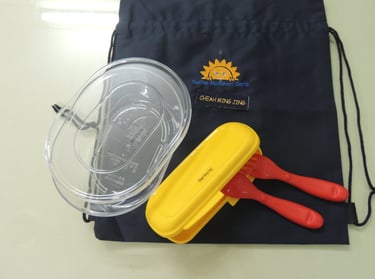

At TMC, we are committed to environmental sustainability, and one way we achieve this is by reducing the consumption of animals and fish. As the world’s population continues to grow, our demand for food will increase. Studies on world food security estimate that a diet rich in meat requires up to three times as many resources as a vegetarian diet. By promoting a more plant-based diet, we help conserve vital resources such as water, land, and energy.
Reducing meat consumption also helps mitigate climate change, reduce pollution, and preserve natural habitats. Livestock farming is a significant contributor to greenhouse gas emissions, deforestation, and water contamination. By encouraging plant-based meals, we aim to minimize these environmental impacts and teach children the importance of making sustainable food choices.
In addition to the environmental benefits, reducing the consumption of animals and fish also promotes children's health. Many livestock and fish are fed a variety of drugs to fatten them faster and keep them alive in conditions that would otherwise be fatal. These drugs can enter the human food chain through direct consumption or via pollution of our waterways, posing potential health risks.
By advocating for a plant-based diet, we aim to protect our students from exposure to harmful substances and encourage the consumption of nutrient-rich foods that support overall well-being and development. A diet focused on fruits, vegetables, grains, and legumes provides essential vitamins and minerals that are crucial for healthy growth.
Through these practices, we strive to educate and inspire our students to make food choices that are both healthy for them and sustainable for the planet. This initiative not only promotes their personal health but also supports the broader goal of creating a more sustainable and equitable world.
Meatless Meals
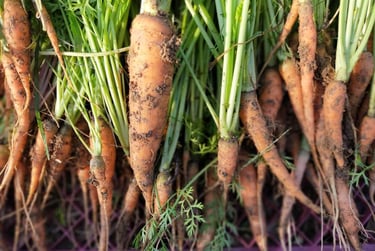

At TMC, our chef actively participates in our sustainability efforts by composting kitchen waste. As she goes about her daily cooking, she collects food scraps and adds them to the compost pile. This practice not only helps to reduce the amount of rubbish but also plays a crucial role in enriching the soil with valuable nutrients over time.
The composting process involves the chef carefully managing the compost pile to ensure optimal conditions for decomposition. By turning food waste into nutrient-rich compost, we can significantly reduce our environmental footprint. The resulting compost is then used to enhance the soil in our vegetable farm, promoting healthy plant growth and contributing to a more sustainable food cycle.
This initiative not only demonstrates the importance of waste reduction and resource recycling but also serves as a practical example for the children. They observe how everyday actions, like composting, can have a positive impact on the environment. This hands-on approach to sustainability education helps to instil a sense of responsibility and awareness in our students.
By integrating composting into our daily routines, we aim to foster a culture of sustainability at TMC. The children learn valuable lessons about the benefits of composting, the importance of soil health, and the broader implications of their waste management practices. Additionally, this initiative encourages families to adopt similar practices at home, further extending the reach of our sustainability efforts.
Overall, the composting initiative at TMC not only reduces waste but also enhances our vegetable farm's productivity, providing a tangible example of environmental stewardship for our children and the community.
Composting
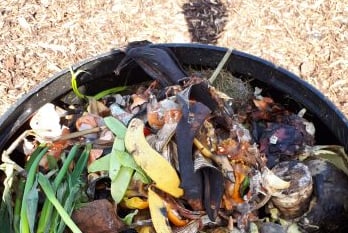

At TMC, we organize a Rubbish Collecting Camping event where parents, children, teachers, and the community come together to camp and clean the environment. This project plays a crucial role in promoting environmental sustainability by directly addressing litter and pollution in our surroundings. By participating in this event, children and families actively contribute to reducing waste and preserving the natural beauty of our local area.
Engaging in this hands-on activity helps raise awareness about the impact of littering and the importance of maintaining a clean environment. Participants learn about the significance of waste management and the benefits of keeping our natural spaces free from pollution. This experience fosters a deeper appreciation for the environment and encourages sustainable practices in everyday life.
In addition to its environmental impact, the Rubbish Collecting Camping event also imparts a strong sense of social responsibility among families and the community. Working together towards a common goal strengthens community bonds and highlights the importance of collective action in creating positive change. Through this project, children witness firsthand the power of teamwork and the difference they can make when they collaborate with others.
By combining environmental stewardship with community engagement, the Rubbish Collecting Camping event provides a holistic approach to sustainability education. It instills values of care, responsibility, and cooperation, which are essential for building a sustainable future. This initiative not only helps clean our surroundings but also nurtures a culture of environmental and social consciousness that will benefit our children and community for years to come.
Other Notable Recycling Projects
